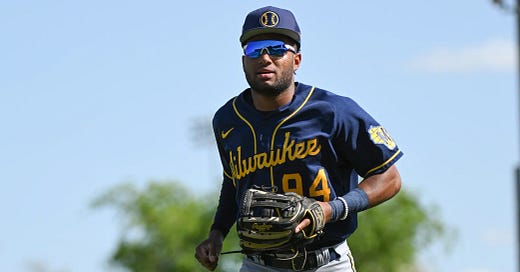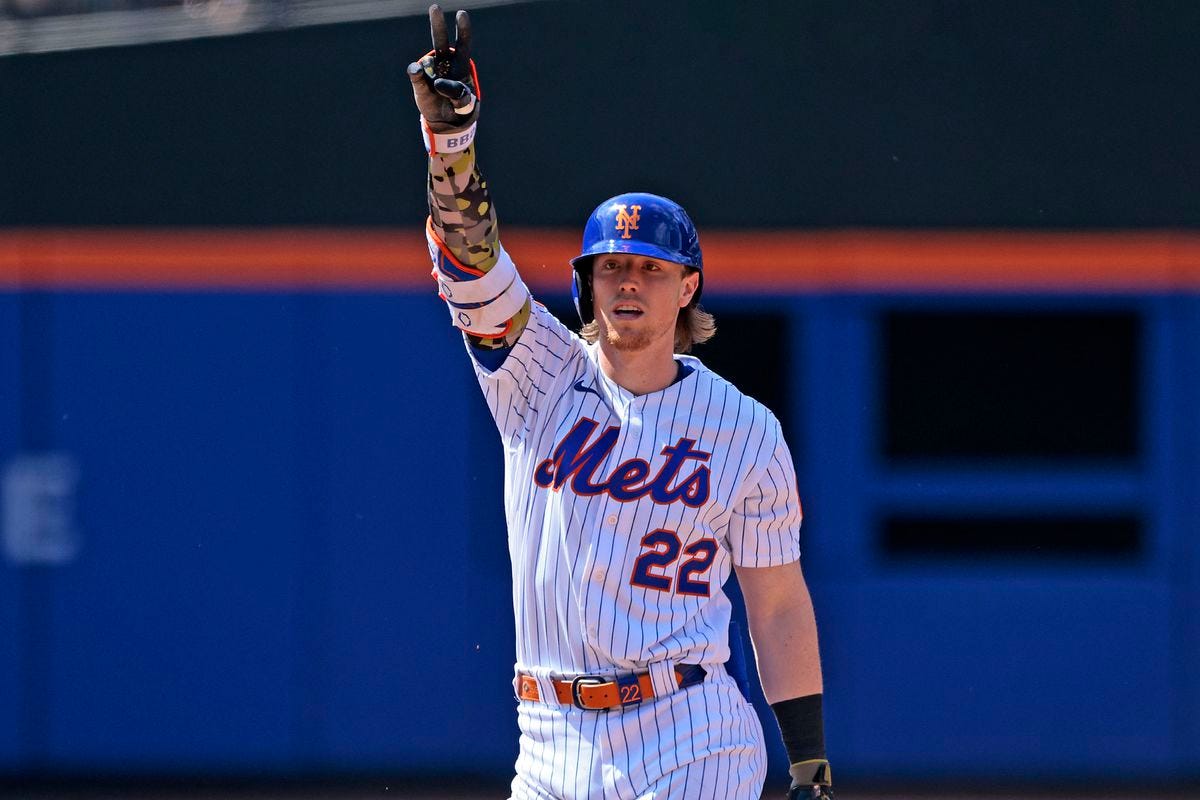Over the last two weeks, you’ve seen my brother-in-arms Mikey O’Connor post twice on potential ambitious extensions for the Baby O’s of Baltimore. The first blog focuses on the most obvious candidates: newly acquired Corbin Burnes (set to become a free agent after the 2024 season) and the youth movement of Adley Rutschman and Gunnar Henderson. Those are all fine extension candidates, and I think all of Baltimore would love to see something along the lines of what was outlined in Mikey’s blog happen.
I DO take some issue on his second slate of candidates, outlined in pt. 2 here. The players in question are Jackson Holliday, Samuel Basallo, and Coby Mayo. Notice anything about these three? Those of you who, like me, aren’t educated in the way of slapdick prospects will notice that these three have a combined ZERO games played at the MLB level. And while Mikey’s blog post is moreso a thought experiment rather than an actual prediction, we’ve seen a sea change that began with Alex Anthopolous lowballing his players that has crescendoed into a contract with $82 million in guaranteed money being awarded to Jackson Chourio. MLB front offices are obviously smarter than me and run their own risk-reward calculation when handing out these deals. But, I do think we need to throw some caution into the wind before this becomes a baseball regularity.
I think the Jackson Chourio contract is a good place to start. As I mentioned above, Chourio signed an eight-year contract that has $82 million in guaranteed money, with club options in 2031 and 2032 that could take the total value to $142.5 million. For those doing the math, that’s $10.3M in AAV without options, and up to $14.3 million for the full 10-year term. That’s a lot of cash that’s being handed out to someone who has not played a SINGLE game at the Major League level, particularly if you comp this amount to the rookie salary of $720K that applies for the entirety of their pre-arbitration team control years (3 – 4 years). That differential of ~$9M can go a long way to address other weaknesses in the roster, rather than paying an unknown entity $10M a year.
This “man” is a literal 19 year-old kid.
Of course, I’m exaggerating a bit when I say “unknown entity.” Talent evaluation is now better than ever in the league in large part due to the rise of analytics. It’s no small decision when a contract of this magnitude is given out. We are seeing more and more conviction from front offices as to who they allocate payroll to, which is why you see contracts like Yoshinobu Yamamoto’s behemoth despite having pitched ZERO games in Major League Baseball. But when these decisions go wrong, it can really hamstring your franchise’s ability to win, especially a franchise with historically smaller purse strings. There is merit to at least seeing what a player can do at the Major League level before pulling the trigger and making a huge, and often times lengthy, commitment.
Brett Baty is a personal favorite of mine, but if the Mets had gone the way of pre-MLB debut extension, it would NOT have looked pretty. During his stint at AA before being called up during the 2022 season, Baty absolutely crushed with a wRC+ of 160 in just under 400 plate appearances. He appeared to be primed for the show, and showed off that sweet, sweet swing, slugging a home run versus the Braves in his very first at-bat. Fast-forward another 400 plate appearances in the Big Leagues, and his wRC+ sits at 68 (almost nice). Compare that to Jackson Chourio, who generated a wRC+ of 112 in over 550 plate appearances at the AA level. While Chourio’s value also comes from superb outfield defense, batting 12% above league average in AA doesn’t inspire a lot of confidence, and certainly not as much as the 160 Baty posted. Point is, even with disgusting MiLB numbers, success in the Majors is not guaranteed.
I still believe in you, sweet prince.
The counter to the above comparison is that we are comparing Baty’s age-22 season to Chourio’s age-19, and that is a fair one. Additionally, Chourio played half his season in a league where MLB experimented with pre-tacked balls, giving pitchers an unusual advantage and making it harder for analysts to compare results from this league to others. It is clear that Chourio is not done developing physically and that there is a lot more untapped upside. But what about mental development? When Fernando Tatis Jr. signed his landmark 14-year $340 million dollar contract, it seemed like a slam dunk. Despite the initial success, the immaturity shown by Tatis Jr. following his motorcycle accident and subsequent steroid + ringworm debacle had people questioning the huge financial and time commitment. Imagine if he were available to play during that 2022 playoff run? The Padres now find themselves in a sticky financial situation, and that’s even without whatever Joe Musgrove had on his ears in the 2022 Wild Card Series. Kidding aside, a large part of the malaise they are in is due to the mega-contracts they have given, Tatis’ included.
And while Ken Rosenthal fumbled the messaging on his Wander Franco article, the core of his message remains true in that when teams choose to extend their uber-young talent, they’re effectively handing the keys to the franchise to a kid.
We’re a bit blinded by all the success stories that this approach has yielded. Think Ozzie Albies, Ronald Acuna, and most recently, Julio Rodriguez. And while I do think the emergence of this type of contract is generally better for the league, I urge caution in taking it to the extremes we are seeing today.
-KL






